Description
BHUTA IDOL – DIETY ON PANJURLI
This vintage idol of a deity riding a wild boar is a Panjurli. Riding a boar, the deity here personifies the spirit of a Panjurli. Panjurli is the divine spirit of a male wild boar worshipped as a part of Bhuta Kola. Panjurli in Tulu means a wild boar offspring. As per Paddanas – the ancient Tulu oral literature, Goddess Parvati kept an offspring of a Wild boar as her pet and loved it dearly. It was very naughty and destroyed the gardens in Kailash. Lord Shiva angered by this, killed the Wild Boar. This upset Parvati greatly. To pacify her, Shiva brought it back to life as a spirit and sent it to Earth to protect the people and steer them from evil to good.
Bhuta Worship in the form of Bhuta Kola is celebrated in the Tululand (states of Southern coastal Karnataka like Mangalore, Udupi, Kundapura) and North Malabar region of Kerala and is very much a core part of the socio-cultural life in the village. Some believe the origin of Bhuta worship to be older than Hinduism itself. A Bhuta is a divine ethereal spirit that is believed to protect and promote the welfare of its worshippers. The Bhuta kola attempts to bring together the tangible and the intangible worlds. There are at least 350 kinds of Bhutas which are classified either as those of totemic origin or derived from Hindu gods or human heroes who became saints after their death. Some belief these Bhutas to be from the sect of Ganas, followers and devotees of Lord Shiva.
There are priests who act as oracles or impersonators for the conveyance of the commands of these Bhutas. Bhuta Kolas from feudal times has served as a platform for delivering justice where family disputes and political disputes are referred to as the spirits for mediation and deliverance of justice. Possession, Trance, and Dialogue by the impersonator with the villagers/ devotees are the three main parts of such ceremonies.
The priests or impersonators wore very elaborate costumes and paraphernalia during these cult rituals. Bhuta masks are the most revered and popular of these which were worshipped in the shrines (Sthaana) as representations of these spirits.

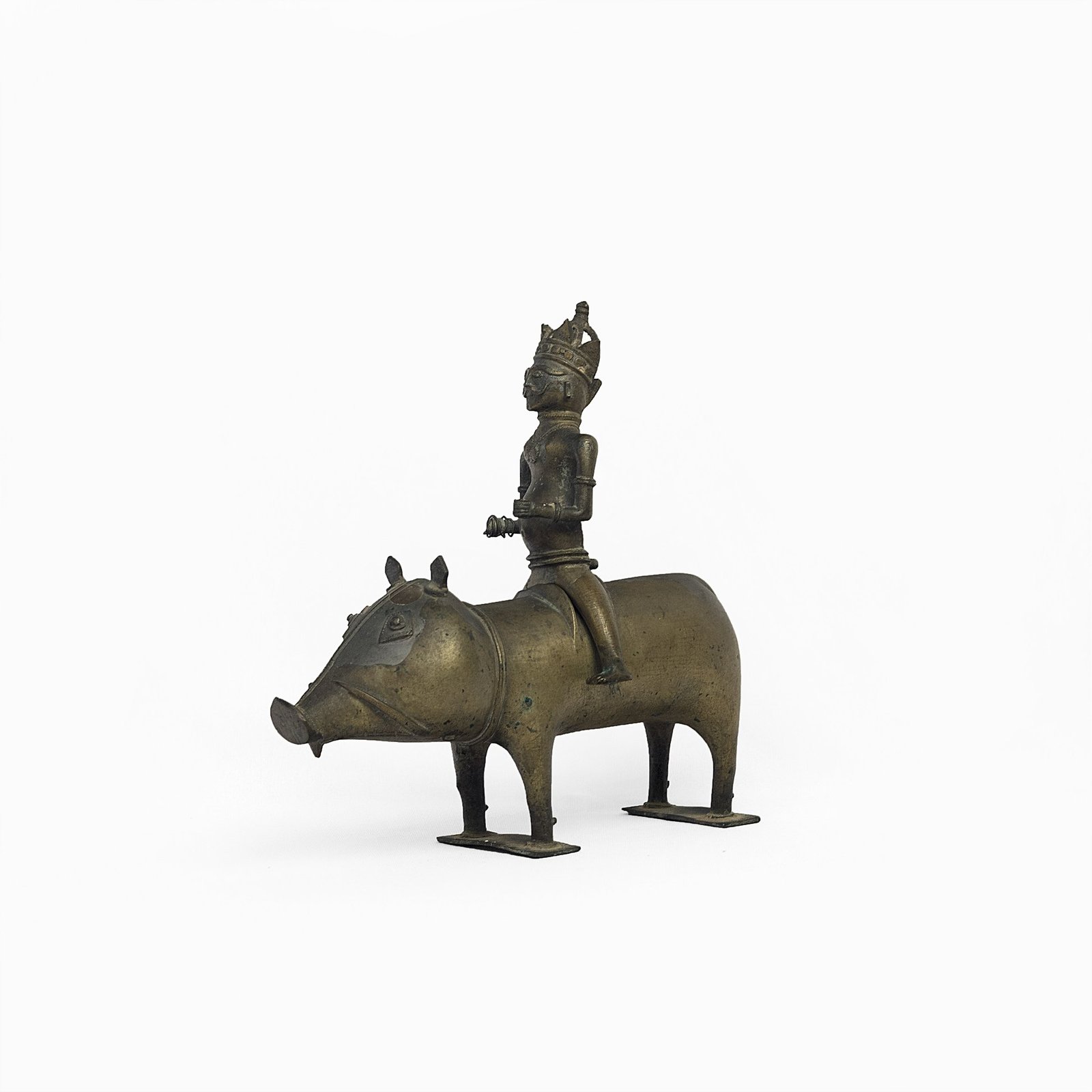
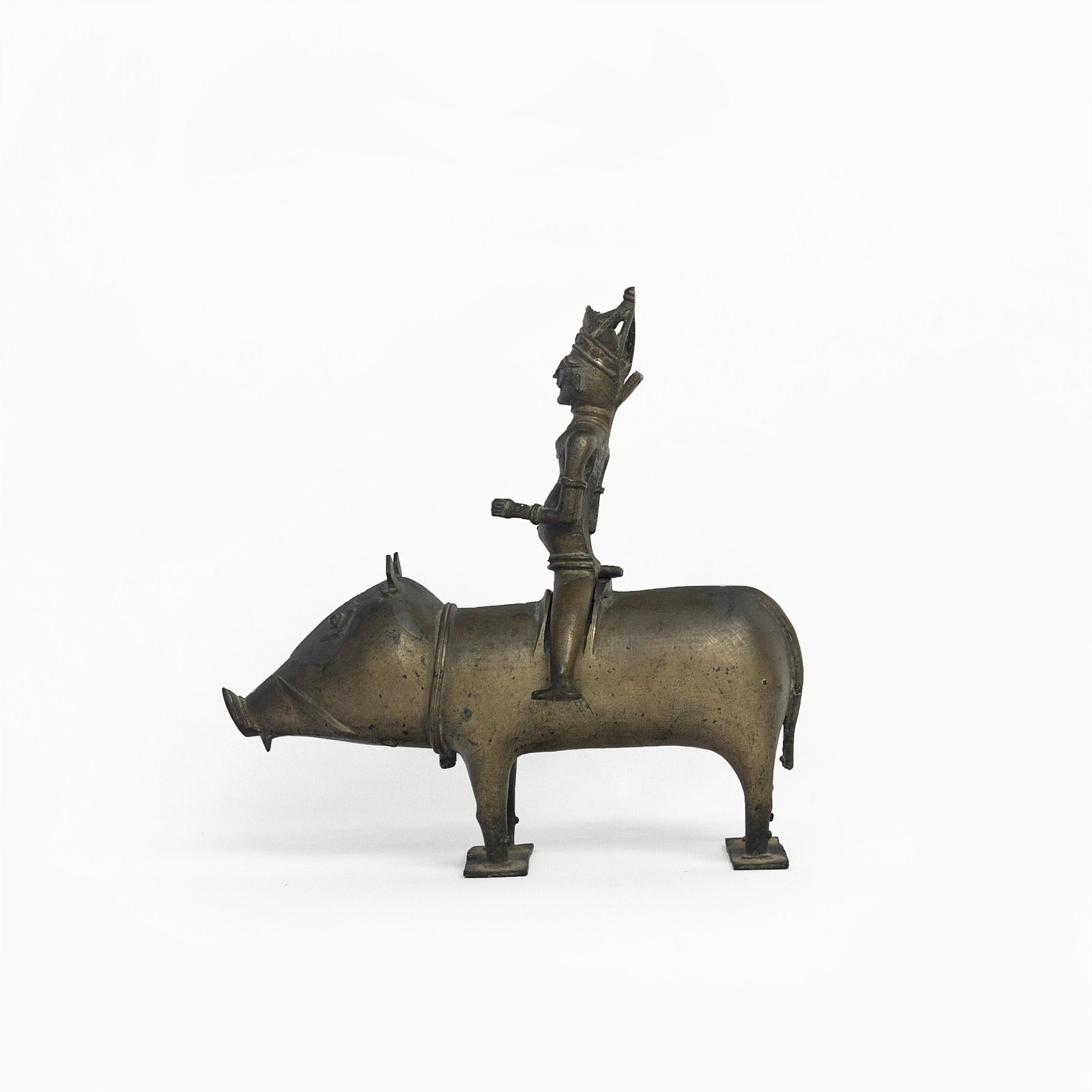
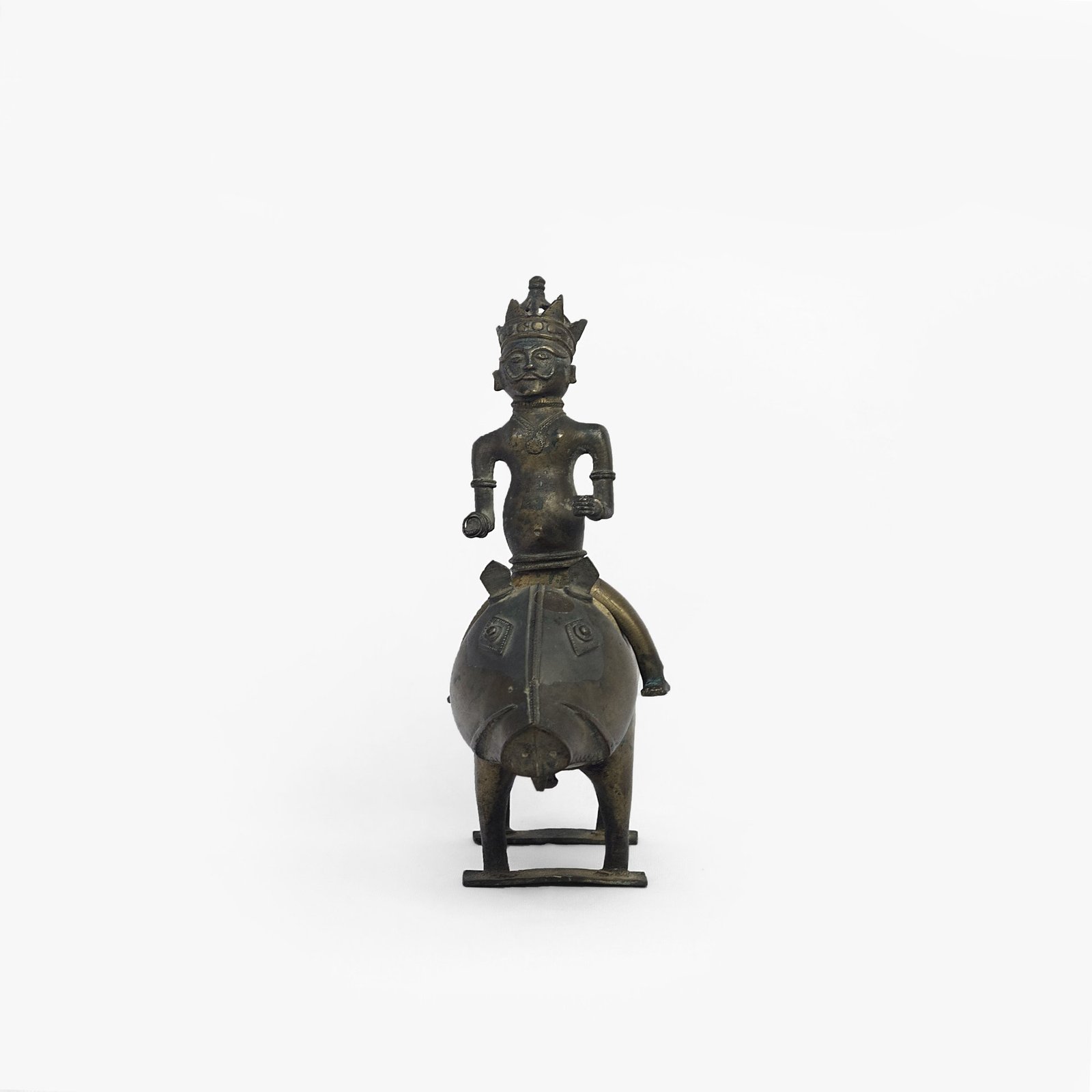
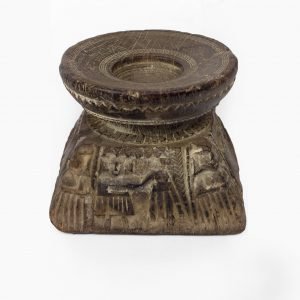
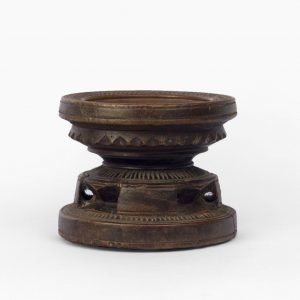

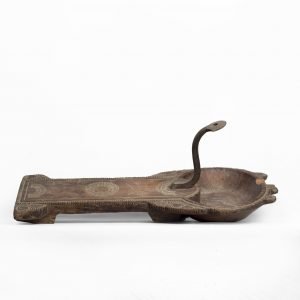
Reviews
There are no reviews yet.